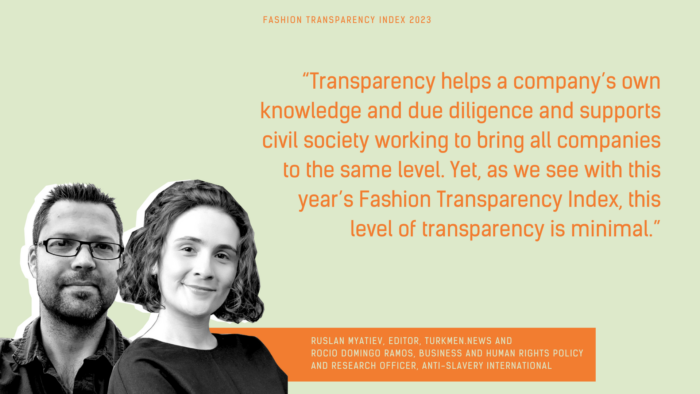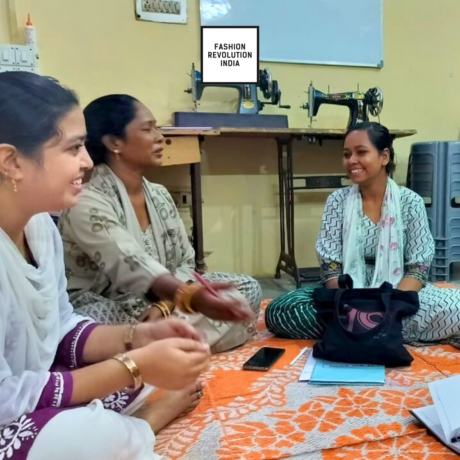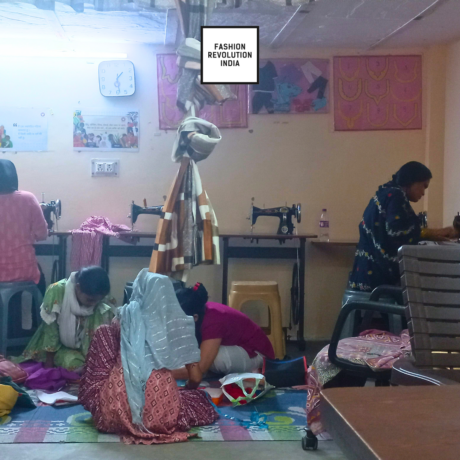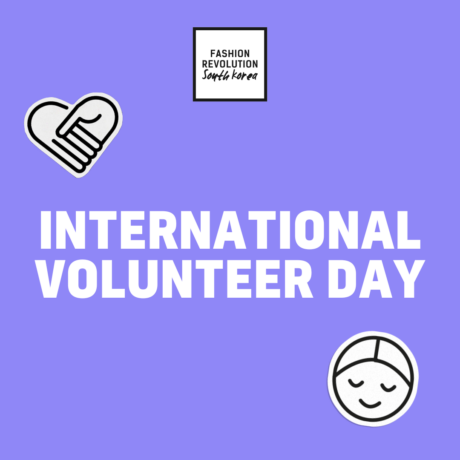The backbone of exploitation: Experts discuss unfair purchasing practices
Traditionally, fashion brand compliance efforts consisted of offloading the direct responsibility for human and environmental rights onto their suppliers, who absorbed this burden as a cost of securing the brand’s business. While the argument that brands aren’t responsible for the welfare of the workers in their supply chain has become indefensible, today many major fashion brands engage in purchasing practices with suppliers which are volatile and abusive. These practices, also referred to as unfair trading practices, include: cancelling and delaying orders; refusing to pay for orders; demanding retrospective discounts; issuing sudden changes in order volumes; and paying for orders very late. Sometimes, customers are wearing clothes before big brands have even paid the factories that made them.
To delve deeper into this topic, we invited a range of industry experts and stakeholders to provide on-the-ground insights and perspectives on how both brands and governments can remedy these issues. Here, you can explore some viewpoints featured in the Fashion Transparency Index 2023.
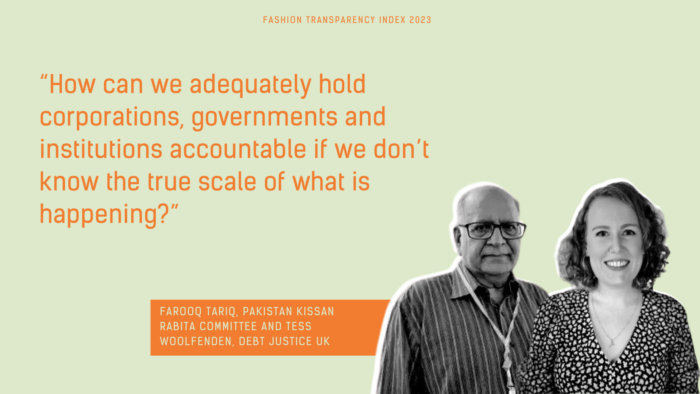
DEBT AND THE GARMENT INDUSTRY: DEBT AS A VEHICLE FOR GARMENT WORKER EXPLOITATION IN THE GLOBAL SOUTH
FAROOQ TARIQ, Pakistan Kissan Rabita Committee
TESS WOOLFENDEN, Debt Justice, UK
Throughout the Global South, many countries and workers depend on the garment industry for their income. Yet, conditions are often deeply exploitative and dangerous for workers, while profits are typically enjoyed by big multinational companies. Many of these inequalities link directly to debt.
For centuries debt has been weaponised against Global South countries and communities to the benefit of Global North elites.Not only do Global North governments, institutions and corporations use debt to extract vast wealth through interest payments ($2.5 trillion since 1970) shrinking the resources that countries have to meet citizens’ needs, they also use debt to tell countries what to do, forcing them to implement harsh austerity-based reforms as conditions of their loans. Global North governments and dominated institutions (like the World Bank and IMF) argue that these reforms – including cutting public spending, deregulating labour markets and liberalising economies – will achieve economic growth and allow countries to repay their debt and fund their development. But after decades, these outcomes have not materialised. Instead, Global South economies have stagnated and poverty and inequality rates soared while foreign investors have enjoyed new access to Global South markets on favourable terms.
For garment workers throughout the Global South, these reforms have created the perfect conditions for wage theft, poor and unsafe working conditions and restricted opportunities to unionise while multinational corporations make mass profits. Making up a majority of the workforce, women have been especially impacted whilst also bearing the brunt of public spending cuts which have forced vital services like healthcare into the home. These impacts are well documented, yet only 14% of major fashion brands involve gender experts in their human rights due diligence processes.
While there has been debt cancellation in the past, debt burdens and thus the ability of Global North powers to enforce economic reforms, remain high as the root causes – irresponsible lending and the Global South’s colonially rooted dependence on borrowing – remain unaddressed.
There are currently 54 countries in debt crisis. Many of these countries also rely on their garment industries, like Pakistan and Sri Lanka. In Pakistan for example, soaring inflation as a result of the debt crisis is causing the cost of essentials like food to skyrocket, which alongside poor and unpredictable wages in the textile sector means many workers can’t afford to eat full meals or pay for necessities. The high debt burden in Pakistan also means that governments do not have the resources to meet citizens’ needs, like funding healthcare or addressing the climate crisis.
In 2022, Pakistan was hit by devastating floods caused by the climate crisis. Recovery and reconstruction is estimated to cost at least $40bn but the country is expected to pay over $18bn in debt repayments this year.1 The floods have hit the textile industry hard. Yet because of a lack of national resources due to the debt, the industry has not been able to fully recover, putting many jobs and livelihoods at risk.
But all across the world, impacted communities are resisting the impacts of unjust debt and forced austerity. In Pakistan, the Kissan Rabita Committee and APMDD Pakistan are demanding an end to the unjust debt plaguing the country, calling on the government to stop repaying its loans, for Global North lenders to cancel the debt, and for living wages for all workers. Global South countries urgently need debt cancellation, free from economic conditions, so they have the resources and policy space to uphold the rights and wellbeing of all workers and citizens.
Addressing a lack of transparency is also key. How can we adequately hold corporations, governments and institutions accountable if we don’t know the true scale of what is happening? In the fashion industry this means big brands publicly disclosing information on their operations. For debt, it means creditors and borrowing governments sharing accessible information on their loans so citizens can hold their governments and lenders accountable.
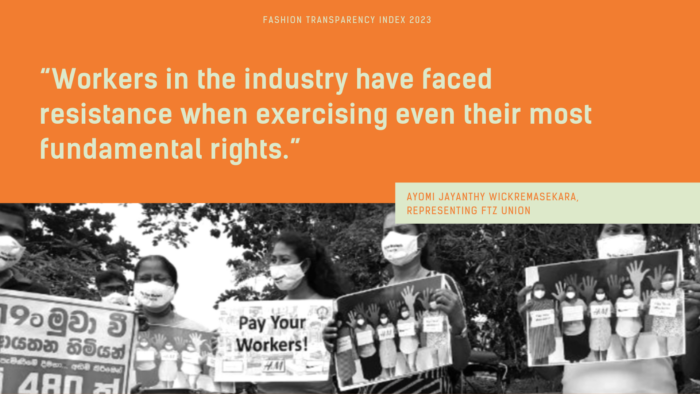
LOOKING AT UNIONISATION IN THE SRI LANKAN GARMENT SECTOR
AYOMI JAYANTHY WICKREMASEKARA, FTZ Union
Free Trade Zones & General Services Employees Union (FTZ&GSEU) was founded in 1982, which aims to protect the labour rights of workers within the Free Trade Zones and throughout Sri Lanka, especially women within the garment industry.
FTZ&GSEU leverages its vast network of garment workers, among both formal and informal union members, as well as their expertise in Sri Lankan labour rights and incorporates their lessons learnt when operating with garment factories’ management and owners.
The apparel industry in Sri Lanka plays a key role in developing the economy. For decades the industry has provided rural communities, particularly women, with access to economic opportunities. Subsequently, over 85% of employees within the industry are women, the majority of whom come from lower economic backgrounds and whose labour is undervalued. Despite the economic strength of this industry, many female workers are subject to widespread violations of the labour law and are highly vulnerable to gender-based violence (GBV) from their employers, supervisors, boarding house owners and other men living and working around the garment factories. This includes, but is not limited to, sexual, physical, and verbal harassment, exchange of sexual bribes for promotions and restrictions on utilising washroom facilities during work hours. Located far from their hometowns and separated from their families, workers are often reluctant to voice their concerns in fear of retribution from their employers.
Increasingly, violations of labour laws have also been observed with factories appearing to target and dismiss unionised workers. Even before the pandemic, trade union membership was low with a unionisation rate of only 15% across all sectors, and just 5% in the apparel sector. Sadly, even at a critical time, workers in the industry have faced resistance when exercising even their most fundamental rights.
FTZ&GSEU, alongside other trade unions, suggested to the EU GSP Monitoring mission the below findings:
The ILO has found the Sri Lanka Board of Investment (BOI) at high risk of violating international legal standards on freedom of association. The workers’ situation is the most arduous in the EPZs where freedom of association remains an illusion and employer-labour relations are usually managed by employee councils. These often undermine freedom of association and collective bargaining. Workers in Sri Lanka do not have access to remedy in case of anti-union retaliation as only the Department of Labour can bring cases concerning anti-union discrimination before the courts.
- Adapt the BOI Labour Standards and Employment Relations Manual to bring into an agreement with the international legal standards on freedom of association.
- The 40% union membership threshold should not be compulsory for recognition as a bargaining agent. This provision has no justifiable basis as stated by the ILO Committee of Experts on the Application of Conventions and Recommendations (CEACR).
- Change the Labour Law to bring into an agreement with ILO Convention 98, in particular regarding the limitation that only the Department of Labour can bring cases concerning anti-union discrimination to the courts.
- The CEARC also found entry into EPZs for trade union representatives are restricted. This is not justifiable and the right to access should be granted.
- Adapt policies on EPZs in particular discontinue the promotion of Employee Councils, and allow trade unions to take their place.
In Sri Lanka there are approximately 400 Garment factories. While some are being close down, there is only one Collective Bargaining Agreement at present (NEXT Manufacturing and FTZ & GSEU) and One Memorandum of Understanding (MoU) signed by FTZ and two other Unions (NUSS and SLNSS) with Joint Apparel Association Forum (JAAF).
“Brands need to go beyond policy commitments when it comes to freedom of association and lay out exactly how they plan to actively engage with trade unions and worker representatives along their supply chain to ensure genuine worker engagement. Importantly, this should include how they will work with suppliers to ensure a conducive environment for freedom of association and the development of representative trade unions at factory level. This is all the more important with the roll-back of trade union rights in multiple garment supplying countries and the continued rise of alternative ‘worker voice’ mechanisms; from the more traditional worker committee structures that often undermine trade union rights to collective bargaining, to the increasing use by brands of ‘worker voice’ tools that can simply never do the job of genuine dialogue and negotiation. As the sector continues to be impacted by economic turbulence, it is more important than ever that workers are able to collectively bargain for safer workplaces and decent livelihoods to ensure that it is not the lowest paid in the supply chain paying the cost for ongoing instability. And as more apparel brands become subject to due diligence legislation, now is the time for buyers to undertake stakeholder mapping along their supply chains to ensure that they are supporting workers, and importantly rights-holder groups such as women and migrant workers, to join and form trade unions to engage in participatory due diligence processes.”
Natalie Swan
Labour Rights Programme Manager, Business and Human Rights Resource Centre
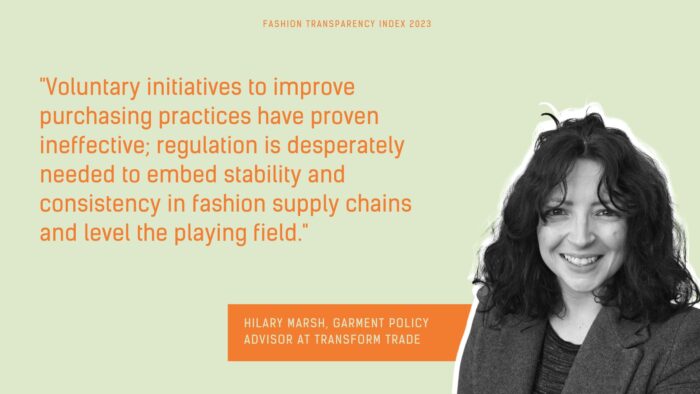
FASHION HAS A PURCHASING PRACTICE PROBLEM: INDUSTRY WATCHDOG NEEDED
HILARY MARSH, Transform Trade
Fashion has a purchasing practice problem. Whilst the data from this year’s report demonstrates an upward shift by brands in their transparency of human rights due diligence processes (68% in 2023 compared to 34% in 2020), there has been no movement on publicly committing to paying suppliers within even 60-day time frames. Late payments are a part of a bundle of purchasing practices which directly impact on a supplier’s operations, potentially creating the very issues due diligence tries to mitigate. Voluntary initiatives to improve purchasing practices have proven ineffective; regulation is desperately needed to embed stability and consistency in fashion supply chains and level the playing field.
It is concerning that the simple act of disclosing policies to pay suppliers within a maximum of 60 days is proving a struggle for major fashion brands, with only 11% publishing a policy to pay suppliers within 60 days, stagnant since last year. Much of the disclosure made by brands and retailers, for instance in HRDD reporting, is based on information provided by suppliers, about the workers employed by suppliers or environmental impacts incurred within supply chains. The lack of information provided about the actions of the retailers themselves is a vital missing piece of information. Particularly given the role that brands’ purchasing practices can play in enabling or undermining improved labour rights. For example, the ILO’s 2017 report pointed to a correlation between companies committing to pay at least the cost of production and a 20% uplift in wages. When brands pay their suppliers months late, then it is suppliers, and ultimately garment workers (experiencing poor labour rights including incorrect overtime payments, delayed and inaccurate wages), who are effectively subsidising fashion brands’ operations, and as it stands only 4% of fashion brands share the number of orders that have retrospective changes to their previously agreed payment terms.
But it isn’t just late payments which impacts suppliers’ operations. In a survey from the University of Aberdeen released this year of 1000 Bangladeshi manufacturers producing clothing for global brands and retailers, more than 50% reported at least one of the following four unfair practices by brands and retailers: cancellation of orders, price reduction, refusal to pay for goods dispatched or in production, and delaying payment of invoices of more than three months. These methods used when fashion brands buy clothing dump inappropriate, unexpected, and excessive risks and costs onto their supplier factories and undermine the market for brands treating manufacturers fairly. Practices like this were once widespread in the food retail sector but were banned with the establishment of a Supermarket Watchdog enforcing a Code of Practice. Its introduction has seen a huge reduction in these practices with 79% of suppliers surveyed reporting experiences of code breaches in 2014, falling to 29% by 2021.
We urgently need legislation for the fashion sector. Luckily, there is growing support to follow suit. The proposed ‘Fashion Watchdog’ (or Fashion Supply Chain Code Adjudicator, as set out in a UK Private Member’s bill) would oversee fashion brands’ buying practices and be able to reverse unfair decisions in line with a code of practice for the industry.
If you are in the UK and in support of fair purchasing practices by fashion retailers and brands selling in the UK market, head to our Fashion Watchdog MP Pledge page, and contact your MP today to ask them to support this vital proposal.
STATE-IMPOSED FORCED LABOUR IN TURKMENISTAN’S COTTON HARVEST: THE NEED FOR SUPPLY CHAIN TRANSPARENCY
RUSLAN MYATIEV, Turkmen.News
ROCIO DOMINGO RAMOS, Anti-Slavery International
Turkmenistan’s cotton industry is underpinned by a state-sponsored forced labour system.
Every year, the government forces hundreds of thousands of public sector workers, like teachers and doctors, to pick cotton, pay a bribe, hire a replacement worker, or face threats of lost wages and termination of employment. In many cases, children pick cotton alongside their parents. Farmers are forced to meet official production quotas under threat of penalties. Private businesses are also forced to contribute workers or services, for example, vehicles to transport forced labourers. The Turkmen government is resisting reforms to the industry and has taken harsh actions against those who report on abuses in the sector.
Given the government’s total control of cotton production, for any company sourcing cotton or cotton products directly from Turkmenistan, it is a fact that their product is tainted with forced labour. But there is also risk for those who source from countries that produce textiles using Turkmen cotton, yarn and fabric. For companies in the United States, due to a Customs and Border Protection Withhold Release Order on Turkmen cotton, they are illegally importing such products. To assess and mitigate that risk, full mapping of supply chains and transparency is integral.
Turkmenistan is the 10th-largest cotton producer in the world and has a vertically integrated cotton industry. Turkmen cotton from any stage of production can find its way into supply chains. According to UN Comtrade data, in 2022 Turkmenistan exported cotton and cotton products valued at almost US$300 million to several countries across the world. Research by Cotton Campaign members on commercial trade and value chain databases shows that Turkmen cotton enters the global markets through two main streams:
- As finished goods produced in Turkmenistan and exported through direct trade routes or transhipped to, for example, Kazakhstan, Russia, Belarus, Italy, the U.S., and Canada;
- Through suppliers in countries that produce textiles using Turkmen cotton, yarn and fabric, in particular Turkey, but also China, Pakistan, and Portugal, among others. For example, Turkmenistan is the largest source of fabric imports to Turkey, and the second largest source of yarn, after Uzbekistan.
The repressive system of state imposed forced labour in Turkmenistan makes it impossible for brands and retailers to conduct any credible due diligence on the ground to prevent or remedy forced labour. For this reason, companies must map out their entire textile supply chains, down to the raw material level, and eliminate all cotton, yarn and fabric originating in Turkmenistan, with a focus on identifying the intermediary routes by which it reaches supply chains. It is disappointing that transparency is low across fashion’s supply chains, especially at raw material level where just 12% of major fashion brands publish their raw material suppliers, like cotton farms.
Transparency helps a company’s own knowledge and due diligence and supports civil society working to bring all companies to the same level. Yet, as we see with this year’s Fashion Transparency Index, this level of transparency is minimal.
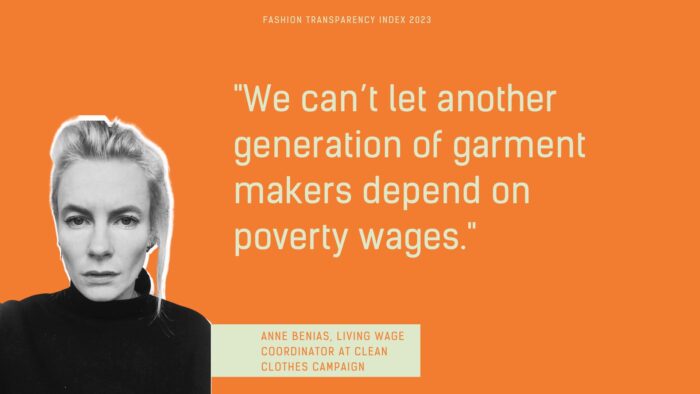
WE CAN’T LET ANOTHER GENERATION OF GARMENT MAKERS DEPEND ON POVERTY WAGES.
ANNE BIENIAS, Clean Clothes Campaign
The Fashion Transparency Index and the Transparency Pledge have been at the forefront of pushing for the enormous increase in the amount of brands publishing their suppliers list over the past few years, with more or less detail, which has been immensely important for the work of the Clean Clothes Campaign network and other labour rights groups.
It’s impossible to hold brands accountable for violations in their supply chain if there is no oversight of which brands are producing where. However, transparency at this level is not enough. A list of factories on a brands’ website or on the Open Supply Hub does not tell a consumer under what conditions their item of clothing was made or how much the maker was paid to make it.
This is tricky, as more and more brands make bold claims or promising commitments about paying living wages to workers in their supply chain, roughly 28% of the brands covered in this research. We can clearly see that this is the first step towards a living wage and with the lowest threshold. The more specific it gets (so moving from a commitment to an action plan and then to implementing that action plan) the fewer brands are able to provide any evidence or details.
Only three brands in this research can provide evidence of paying some of their workers a living wage, despite decades of corporate social responsibility and voluntary multi-stakeholder initiatives. This unfortunately means that most workers in these brands’ supply chains are still paid poverty wages; a minimum wage – where there is a statutory minimum wage – or per piece. Statutory minimum wages are far below living wages in garment production countries.
The minimum wage in Bangladesh has not been revised for five years, which essentially means that workers’ purchasing power has decreased over the past five years because of inflation and rising cost of living. The situation in other countries is similar: workers’ wages don’t rise as quickly as inflation. The gap between wages earned and what constitutes a living wage is growing, despite all good intentions by some fashion brands. It’s clear that workers can’t wait for brands to figure it out by themselves, but that immediate action in the form of legislation or other binding mechanisms to stop this crisis is required.
That is why Clean Clothes Campaign is a key partner in the Good Clothes Fair Pay campaign, calling on the European Union to adopt specific legislation that requires companies to conduct living wage due diligence in their supply chains. We can’t let another generation of garment makers depend on poverty wages.
You can read more about decent work and purchasing practices in the 2023 edition of the Fashion Transparency Index.
Header photo by Marcel Strauß on Unsplash




